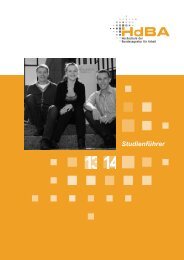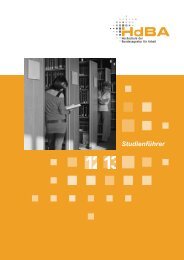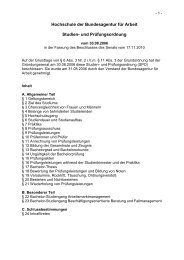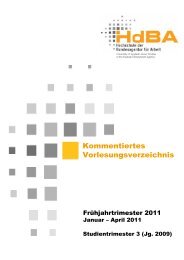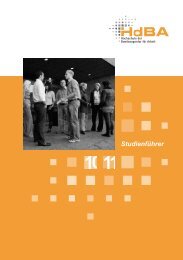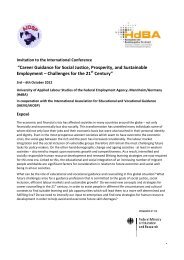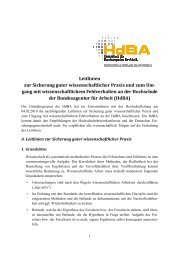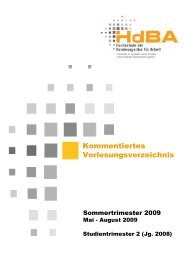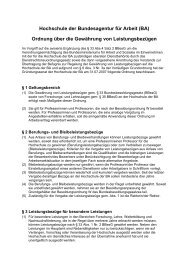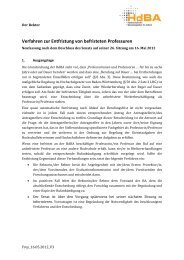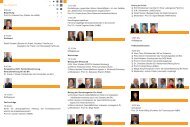Brain Drain - Hochschule der Bundesagentur für Arbeit
Brain Drain - Hochschule der Bundesagentur für Arbeit
Brain Drain - Hochschule der Bundesagentur für Arbeit
You also want an ePaper? Increase the reach of your titles
YUMPU automatically turns print PDFs into web optimized ePapers that Google loves.
��������������������������������������������������<br />
�������������������������������������������������������������������������������<br />
������������<br />
�<br />
�<br />
The basic norms of ethical behaviour in career counselling are presented below.<br />
They may be the basis for elaboration of a detailed ethical code in BD-BG<br />
counselling area.<br />
1. The career counsellor respects and protects the client’s right for a free choice in<br />
the framework of the services provided.<br />
2. The counsellor informs clients before and in the beginning of the counselling<br />
relation about the goals, counselling techniques and specific framework<br />
requirements for conducting the counselling.<br />
3. The counsellor keeps confidentiality in relations with the client with regards to<br />
information acquired through this relationship and in accordance with the<br />
responsibilities of the working environment.<br />
4. The counsellors are aware of their competence limitations; they provide only<br />
services and use only methods they are qualified for.<br />
5. If client’s needs go beyond the counsellor’s possibilities for assistance the<br />
counsellor acknowledges it and refers the client to a relevant specialist.<br />
6. Counsellor’s duty is to provide balance between the client’s needs and the<br />
needs of the organisation he or she works for.<br />
7. The counsellor should inform the client in an un<strong>der</strong>standable way about the<br />
type, goal and results of the standardised test methods.<br />
8. When computer programs are applied the career counsellor should be sure that:<br />
(�) the client is able in intellectual, emotional and physical sense to work with a<br />
computer;<br />
(b) the computer application is relevant to the client’s needs;<br />
(c) the client un<strong>der</strong>stands the meaning of the given computer application;<br />
(d) the client receives feedback in or<strong>der</strong> to solve eventual problems (not<br />
un<strong>der</strong>standing or incorrect usage) and assessment for additional needs to be<br />
made.<br />
9. The career counsellor cannot conduct a relationship of a sexual, physical or<br />
intimate nature with their clients.<br />
10. The counsellor does not allow and execute sexual harassment through<br />
intentional and often repeated comments, gestures or physical contact of a<br />
sexual nature.<br />
11. The counsellor does not discuss and does not allow their personal and<br />
professional problems to threaten the relationship with the client.<br />
12. The career counsellor is aware of the influence of stereotypes and<br />
discrimination (prejudice in regard with age, health status, ethnical belonging,<br />
gen<strong>der</strong>, race, religion and sexual orientation) and protects individual rights and<br />
the personal dignity of the client.<br />
13. The career development counsellor improves the provided practices and<br />
services through continuous education and working practice.<br />
176




